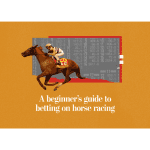Explanation of Pari Mutuel Betting
Pari Mutuel Betting is a system commonly used in horse racing and other sports where all bets are pooled together, and the odds are determined by the total amount wagered on each outcome. Unlike traditional betting where odds are set by bookmakers, in Pari Mutuel Betting, the odds fluctuate based on the betting activity of the participants.
Participants place their bets with a licensed operator, and the total amount wagered is calculated. After deducting a percentage for the operator and taxes, the remaining pool is divided among the winners based on the amount they wagered on the winning outcome. This system allows for potentially larger payouts compared to fixed-odds betting, as the final odds are not determined until all bets are placed and the betting pool is closed.
Origin of Pari Mutuel Betting
The concept of Pari Mutuel Betting can be traced back to France in the late 19th century. It was developed as a way to manage betting at horse races by pooling all bets together and then distributing the winnings among the winners. The term “Pari Mutuel” itself is French and translates to “mutual betting,” reflecting the communal nature of this form of wagering.
The first official Pari Mutuel system was implemented in 1867 at the Chantilly Racecourse in France. It was quickly embraced for its fairness and transparency, as it eliminated the need for bookmakers and ensured that odds were determined solely by the bets placed by the participants. This revolutionary approach to betting soon spread to other countries and became the standard method for horse race betting around the world.
Key Players in Pari Mutuel Betting
Key Players in Pari Mutuel Betting are primarily the bettors themselves. Without individuals willing to wager on the outcomes of races or sporting events, the entire system would collapse. Bettors play a crucial role in determining the odds and potential payouts of each scenario based on their choices and predictions.
Aside from the bettors, another key player in Pari Mutuel Betting is the racetrack or betting agency facilitating the wagers. These organizations provide the platform for individuals to place their bets, ensuring the smooth operation of the system. Additionally, they oversee the collection of all bets, the calculation of odds, and the distribution of winnings, maintaining the integrity and fairness of the betting process.
Process of Placing Bets in Pari Mutuel Betting
When participating in Pari Mutuel Betting, the process of placing bets is relatively straightforward. Bettors simply need to approach the designated betting counters at the racetrack or betting facility. Once there, they can inform the teller of their desired bet type and the specific details of their selection, such as the horse’s number or the outcome they are wagering on.
After providing the necessary information, bettors must then specify the amount of money they wish to wager on their chosen outcome. The teller will then issue a ticket confirming the details of the bet, including the specific race, the selected horse or outcome, the bet type, and the stake. Bettors should carefully review the ticket to ensure that all information is accurate before finalizing the transaction.
Calculation of Odds in Pari Mutuel Betting
To determine the odds in Pari Mutuel Betting, the total amount of money wagered on a particular event is divided by the total amount of money bet on the winning selection. This calculation results in the “pool odds” which indicate the potential payout for each winning bet. For example, if $10,000 was bet on a horse race and $2,000 of that total was wagered on the winning horse, the pool odds would be 10-1. This means that for every $1 bet on the winning horse, the bettor would receive $10 if successful.
Another important aspect of calculating odds in Pari Mutuel Betting is the concept of takeout, which represents the percentage of the betting pool that is retained by the racetrack as commission. Typically, the takeout percentage varies between 15-30% depending on the type of event and the specific rules set by the governing body. It’s crucial for bettors to consider the takeout percentage when evaluating potential payouts, as it directly impacts the amount of money that will be distributed among winning bets.















